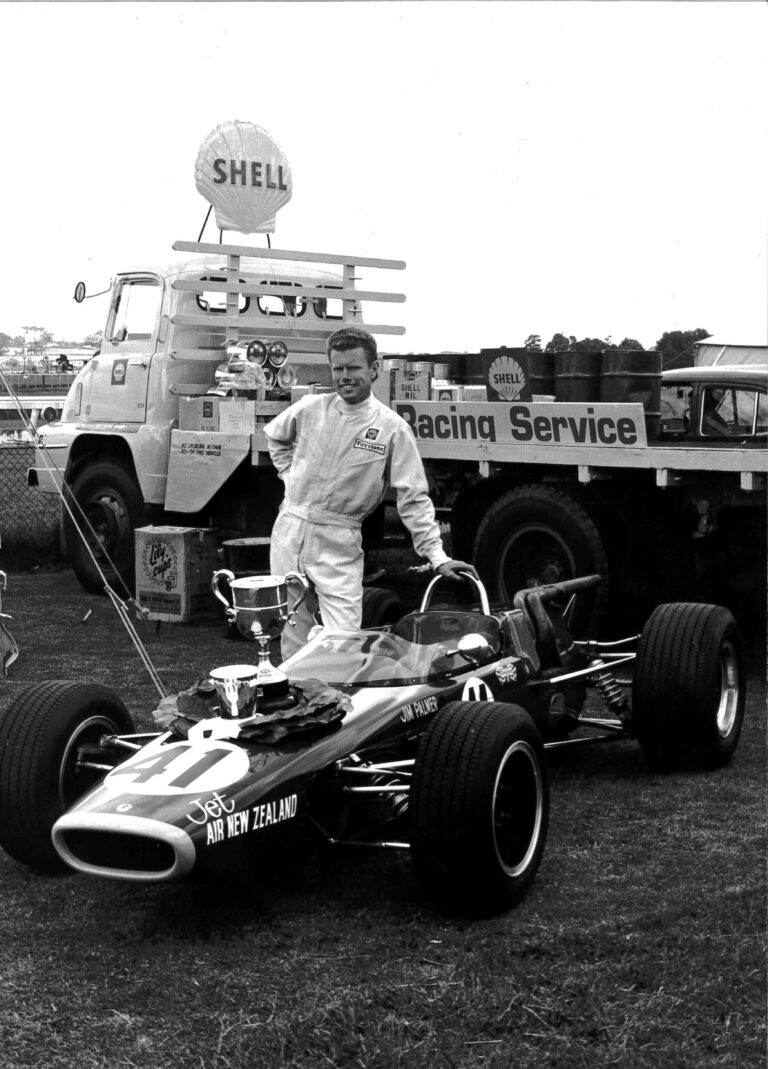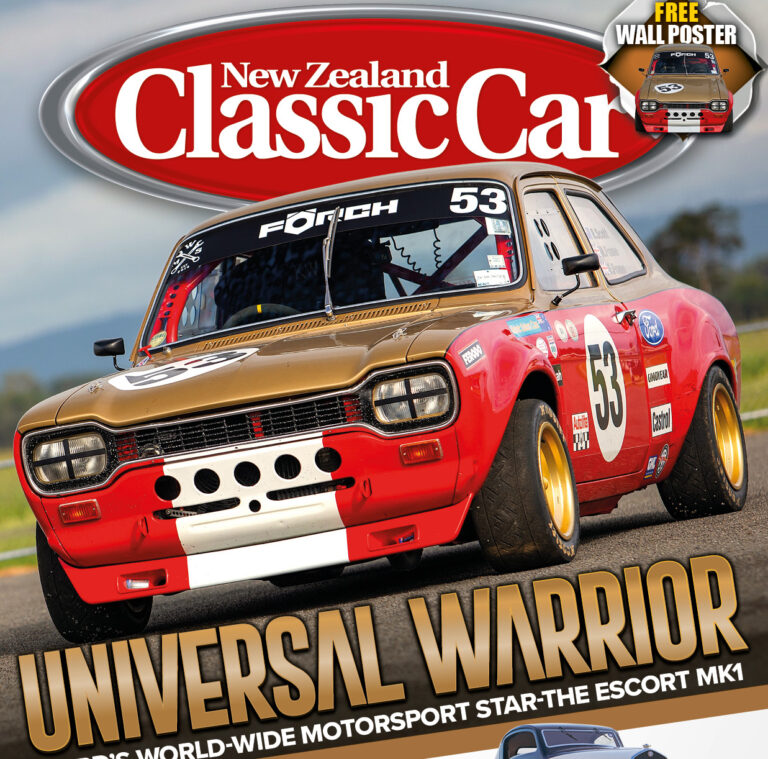The Holden Sandman, already as iconic of the ’70s as a Farrah Fawcett-Majors poster, got an extra shot of stardust after appearing in the local cult TV series Westside. This is that car.
By Ben Selby, photography Kallum Harris

To some, a Sandman is a pagan god who sprinkles sand on you to help you get a good sleep.
Others will think of Metallica’s “Enter Sandman”. But to Holden fans, and classic car fans in general, a Sandman is first and foremost one of the coolest Holdens ever. To young Australian and New Zealand men of the day, the Sandman’s cocktail of sun, beach, camping, surfing, late-night yahooing and all the dusky promise of judiciously applied shag-pile carpeting, was too good to resist.
When the original HQ Sandman was launched in 1974, Holden’s marketing team went all out to boost this image. Every Sandman that left the factory till 1980 sported a bright paint scheme, stripy decals, and a huge Sandman emblem in a psychedelic font blasted across the tailgate. You could never accuse a Sandman of being subtle.
The Sandman came to be after Holden execs noticed panel vans being modified and customised with loud paint jobs and customised interior decor. They decided to get in on the act and their instinct was sound as Holden couldn’t churn them out fast enough. Available with a variety of engines ranging from baby sixes to the 308ci V8, every Sandman was unique. Plus, with plenty of room for sleeping two young adults, it wasn’t long before the Sandman became the ideal way to avoid an embarrassing encounter at home.
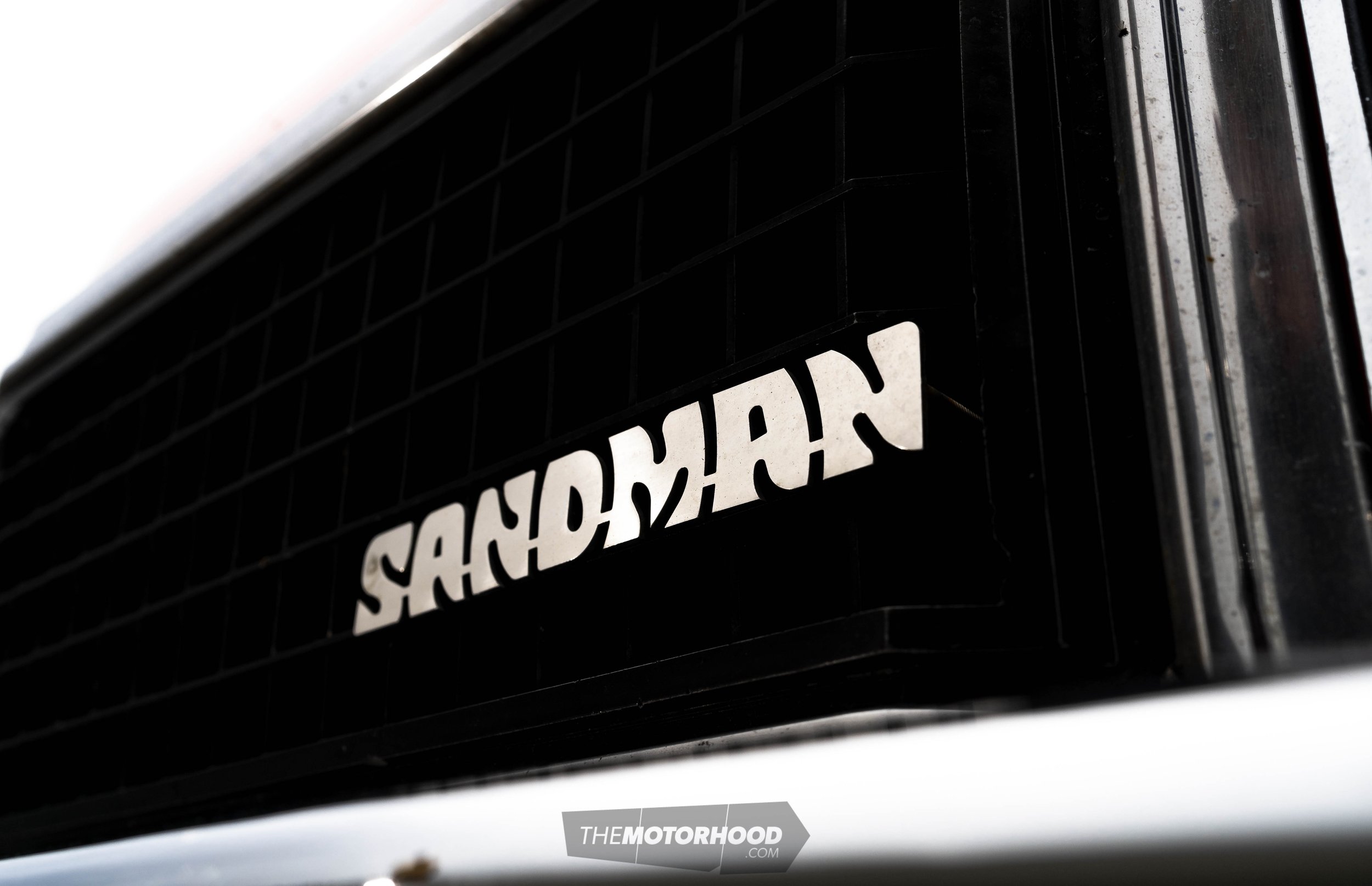


Couldn’t Be Cooler
For the young Dave Blyth, the Sandman was always the coolest car and he finally got one when he was 50. “I have always had a rule. When you turn 50, you buy or can afford to buy the car you lusted after when you were 20. I was 20 in 1979 and the HZ Sandman came out in 1978. It was the coolest of the cool — I just wanted one,” he says. “Back then a Sandman cost $4500 new and a house was worth about $20,000. I made about $30 a week so it was an impossible dream then.”
Dave was heavily influenced by the panel van culture of the time. “I started with an Escort panel van and upgraded to a Holden HD panel van with a 186ci six cylinder. I started a van club, Avon City Vans. There were 20 of us with panel vans and we could go away at the weekends to places like Timaru and the West Coast. Back when I was 19, it gave you freedom and accommodation. You couldn’t afford to stay at a hotel, but you could drive somewhere, play music, hang out with your mates, and your hotel room was right there,” he recalls.
Fast forward to 2009 and Dave’s successful career in web design and as an automotive artist allowed him to amass a fine collection of cars. He has developed a penchant for Jaguars and the odd Bentley, but the Sandman was still high on his list. Finally, he found this 1978 HZ Sandman in Cambridge. The planets aligned and a deal was done. “I had been at a Sevens game in Wellington and was heading back to Auckland. I stopped in at Cambridge and we did the deal then,” he says.
While Dave at last had a Sandman of his own, it was far from factory fresh. “It had been hot rodded, it had the wrong wheels, big fat tyres and chrome alloy over the engine.” Also, the return trip to Auckland didn’t quite go as planned. “I was driving between Hamilton and Auckland and I discovered it had a faulty alternator. The lights were getting dimmer and it eventually completely shut down, so I had to get it towed back to Auckland and fit a new alternator,” he says.

Factory Finish
Since then, Dave has returned the Sandman to close to original specs. “It has a new carb and headers, but otherwise the engine, upholstery, alloys and trim are all stock,” he says.
With many Sandman imitators out there, Dave was assured by the previous owner that it was the real deal. However, it was only two years ago when it was confirmed by Holden’s records department. “I owned it for 10 years with the belief it was a genuine Sandman. Recently I sent the tags to a company which holds all the original records for Holdens. Amazingly,
they got back to me saying that not only is it a real Sandman, but it was one of the few examples built with a 5.0-litre 308ci V8 and four-speed M21 gearbox.” He was pleased to have one of the rarest Sandmans — Sandmen? — ever produced, but Dave had little idea of just how famous his dream car would become.
When news got out that the Te Atatū home of New Zealand’s most popular TV family of career criminals had been demolished to make way for a new housing development, a sizeable chunk of the population went into mourning. Outrageous Fortune and its prequel series, Westside, became part of Kiwi culture, and while it may be just as much of our culture to continually knock stuff down and rebuild, the loss of that iconic westie home still hurt. The elements of the shows that do survive, such as Dave’s Holden Sandman, are all the more precious. Quite easily the four-wheeled star of Westside, the Sandman was driven by career criminal and safe cracker Theodore “Ted” West played by David de Lautour.
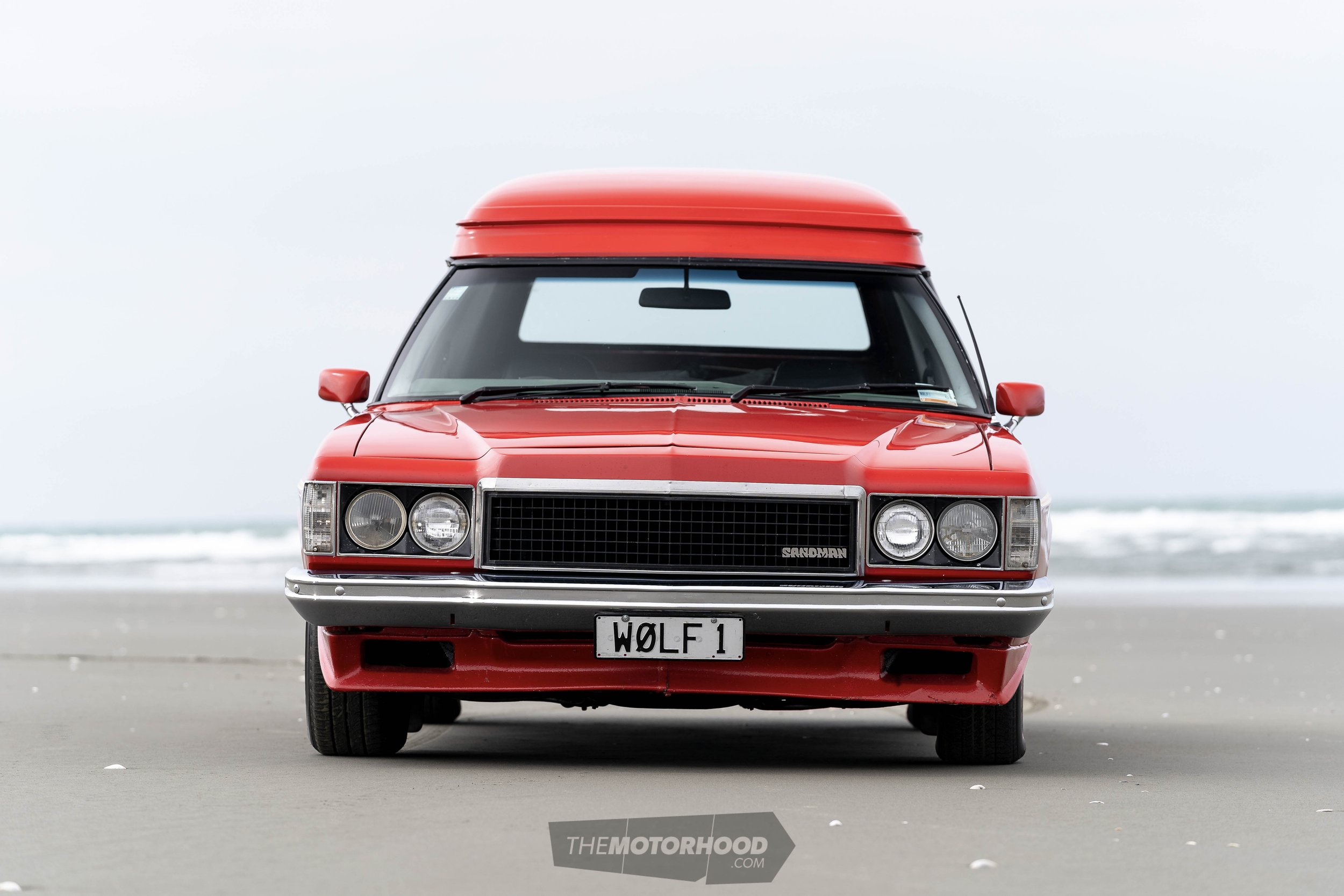
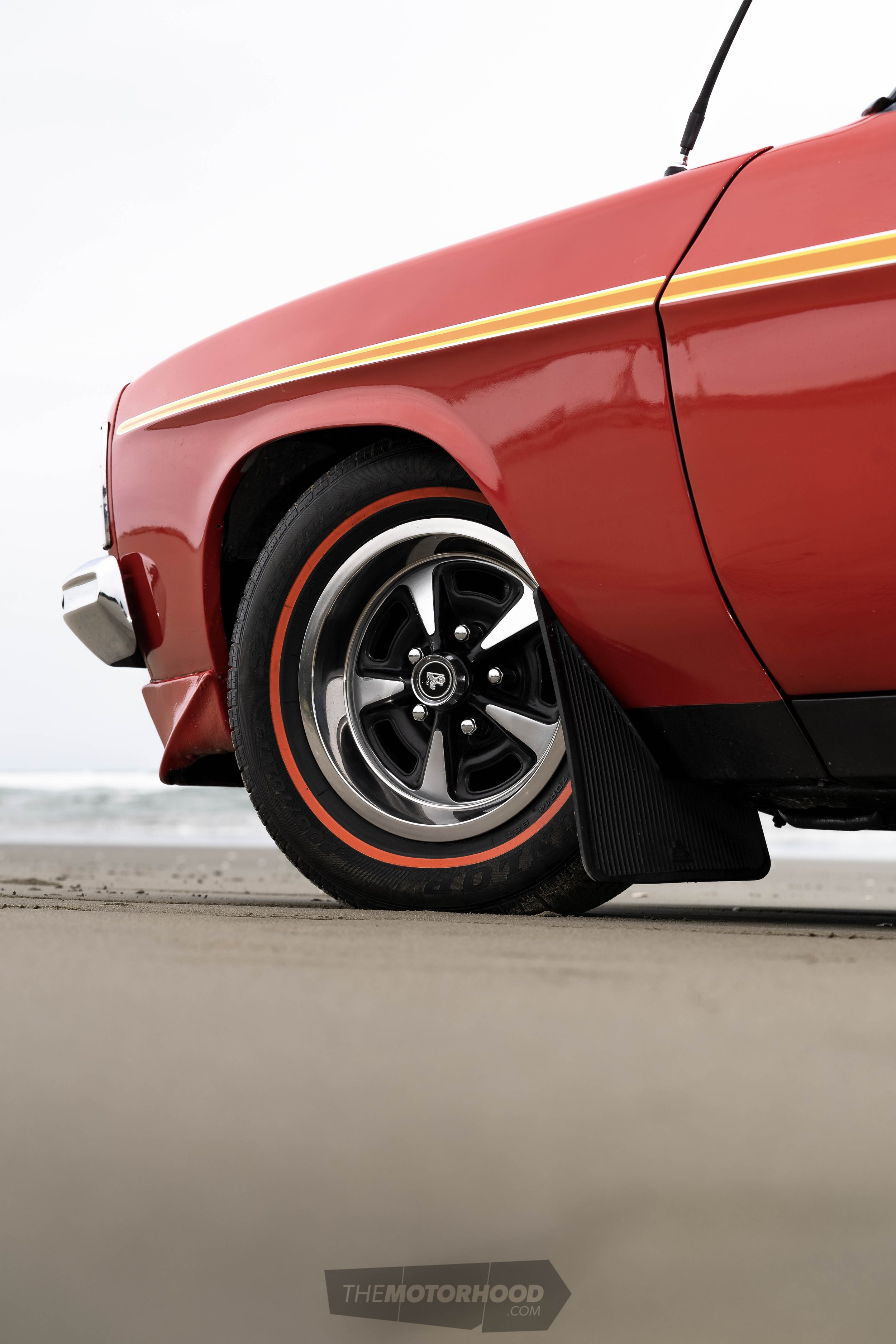
Cover Story
During the first season of Westside, Ted drove around West Auckland in an Escort panel van, but because of the popularity of the show, it was decided Ted should get an upgrade, something better suited to the West’s Te Atatū driveway. It was decided Ted should have a Holden panel van.
When the word got out that the producers of Westside were looking for cars to cast, Dave made them an offer they couldn’t refuse. “I found out Westside producers were looking for cars from the ’70s to star in the show,” says Dave. “I told them I had a Sandman and sent them some photos. They said that was exactly what they imagined Ted would drive in 1979. I was living in Auckland at the time so it pretty much went from there.”
Part of the appeal of Dave’s Sandman was that the car did not have rear windows on either side of the panels, which some owners felt were an upgrade. It was a van through and through, which meant the crew could place Ted’s Henderson Valley Locks signwriting on either side. They covered up that huge Sandman logo at the rear, however, as the camera crew judged it quite distracting. The producers kept Dave’s Sandman for three months while filming season two of the show.
The crew had an official car wrangler, Eliot Naimie, whose job was to source and look after all the classic cars involved in the shoot, such as Ted West’s Sandman, Rita West’s LC Torana, Lefty Munroe’s Ford Fairlane and detective inspector Mike McCarthy’s VB Commodore to name a few. “They really looked after it and never put a scratch on it,” says Dave. After filming wrapped, Dave decided to keep the Henderson Valley Locks vinyl in place.
When season two aired, Dave’s phone went nuts. “Every Wednesday when the show was on, I would get a flood of texts and calls from people saying they had seen my Sandman on TV,” he laughs. When Dave got the call to ask if he was ready for season three, he was happy to help once again. “They contacted me the following year, asking if it was available for season three. I was still living in Auckland so I said, absolutely. They were also very surprised to hear I had left the sign-writing on the panels,” he says.
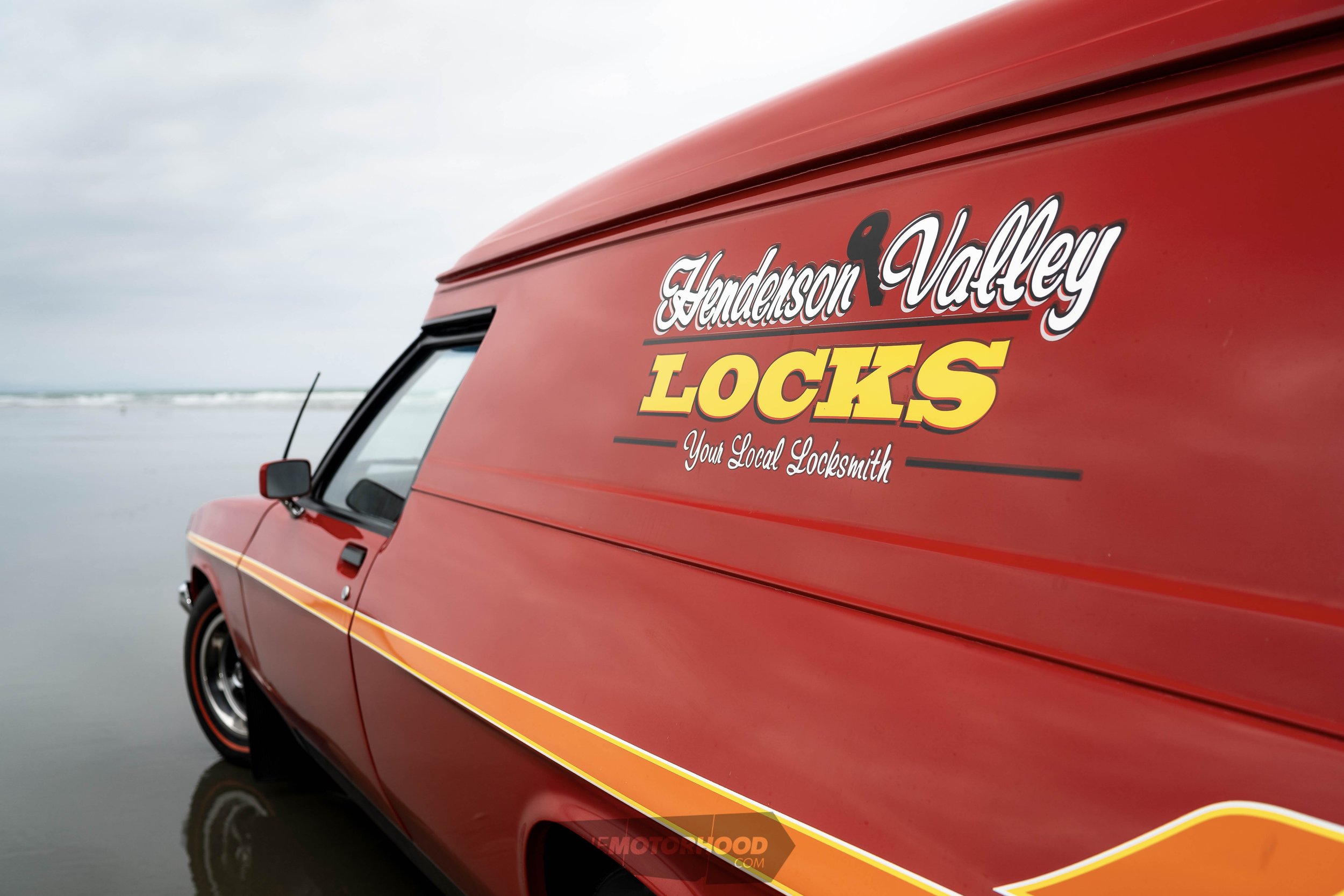
Criminal Connections
By the time the producers were ready for season four of Westside, Dave and his collection of cars, including the Sandman, had relocated. “I told them I had moved to Christchurch when they got in touch about season four, but they insisted the car be used. It was now an inseparable part of the show and they paid to have a truck come to Canterbury and take it back to Auckland for filming,” he remembers.
As Westside has endured, much like Outrageous Fortune that preceded it, Dave’s Sandman still gets swamped by car and show enthusiasts every time he takes it to car gatherings and club events. “Every time I stop for gas, I always get people calling out to me and say something like, ‘Hey, it’s Ted!’” he laughs.
It’s not every day you get the chance to have a quick play with not only a piece of iconic Kiwi TV memorabilia, but also one of Holden’s greatest hits, so I was delighted when Dave offered up the keys.
Hop in and you can get comfortable very quickly. Maybe some kind of genetic memory is kicking in too but those vinyl seats almost swallow you up. Dave has replaced the factory Holden steering wheel with an aftermarket one as he feels the original is a tad too big and bulky. The replacement feels natural enough, so it seems like a fair point.
After a quick adjustment of the front seat to suit, it was time to get moving. A turn of the key and that 5.0-litre V8 rumbles into life. There is something satisfying about any small-block V8. They provide a decent mix of power and torque throughout the rev range. Plus they sound just as good as a big-block. The clutch is a heavy one, and requires a bit of gas when letting it out so we don’t stall, which did happen once or twice, dang it.
Once moving and onto North Canterbury backroads, it was cruise time. The Sandman, despite its more than ample grunt, feels rather heavy. This should not be surprising as you are essentially driving a ’70s camper on four wheels. Shifting from gear to gear requires gentle yet assertive movements of the gear lever. Don’t race that four-speed Muncie box through the gears and you will keep the Sandman happy.


A Feeling Impression
It is a very relaxing car to cruise in. Sure, you can wring its neck and get that 308 on full song, but that would be all wrong, unless you were Ted trying to flee some cops in Kingswoods. Settling back to a cruise with your elbow out of the window, keeping your course straight with thumb and index finger, is the Sandman’s forte. The steering is nice and light and while naturally the anchors require a firm shoe, it’s pretty easy to get into a rhythm as you head to your next beach front, or burglary.
While Dave’s collection of cars continues to grow, the Sandman has and always will hold a special place in his heart. “It just takes me back to my youth. The idea of parking up somewhere away from town, hanging out with friends, having a few beers and knowing that you don’t have to drive that night. You can just spend the night by the lake or wherever you happen to be,” he says. “My partner and I have always talked about doing more trips around New Zealand like that with the Sandman, but it hasn’t really happened yet, because there are so many nice hotels out there,” he laughs.
You can’t argue the point but the romantic allure of just taking off in the Sandman is powerful. This Holden HZ Sandman, TV star and now blue-chip classic rolled into one, is nothing short of a time capsule from when your car and castle were one and the same.

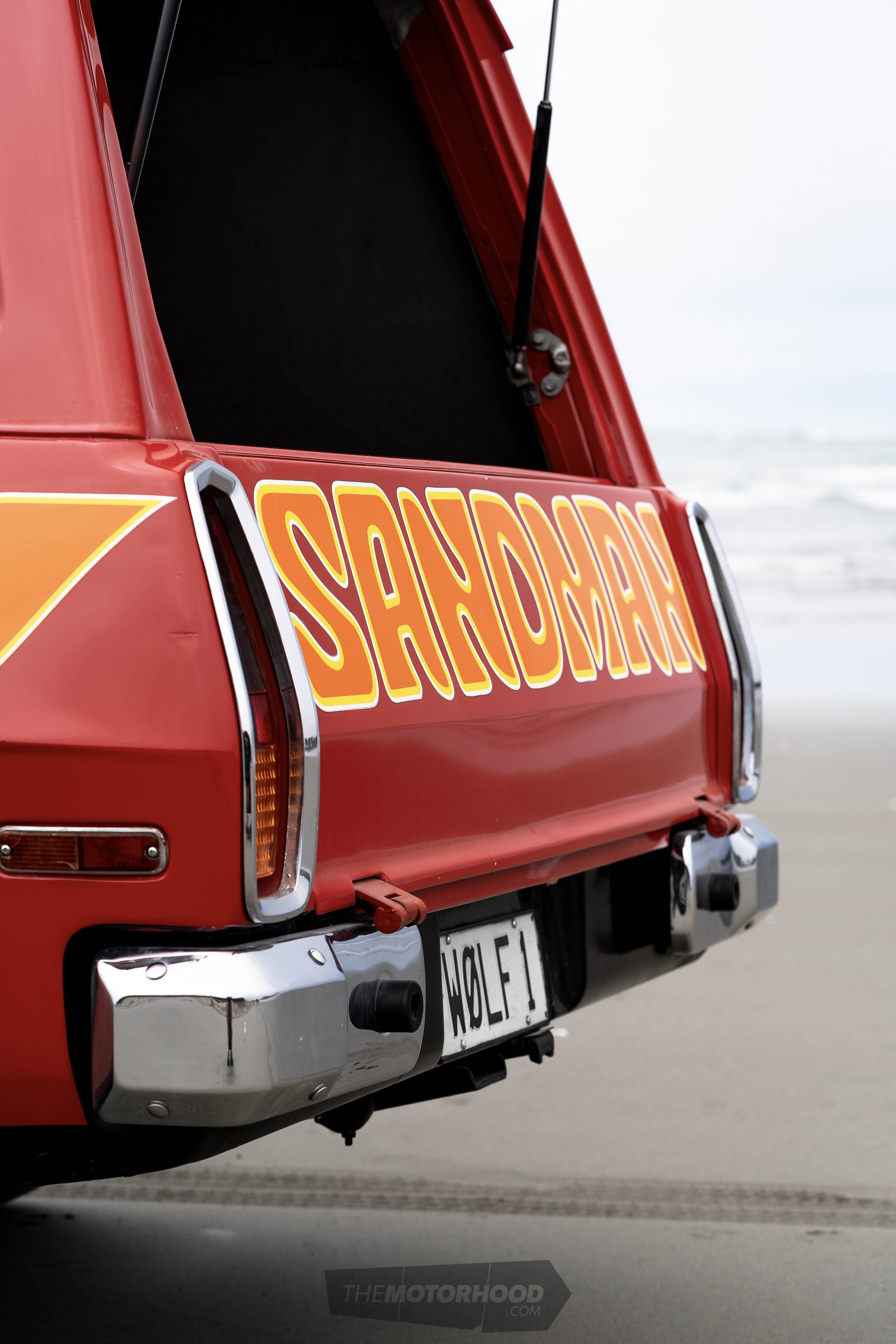
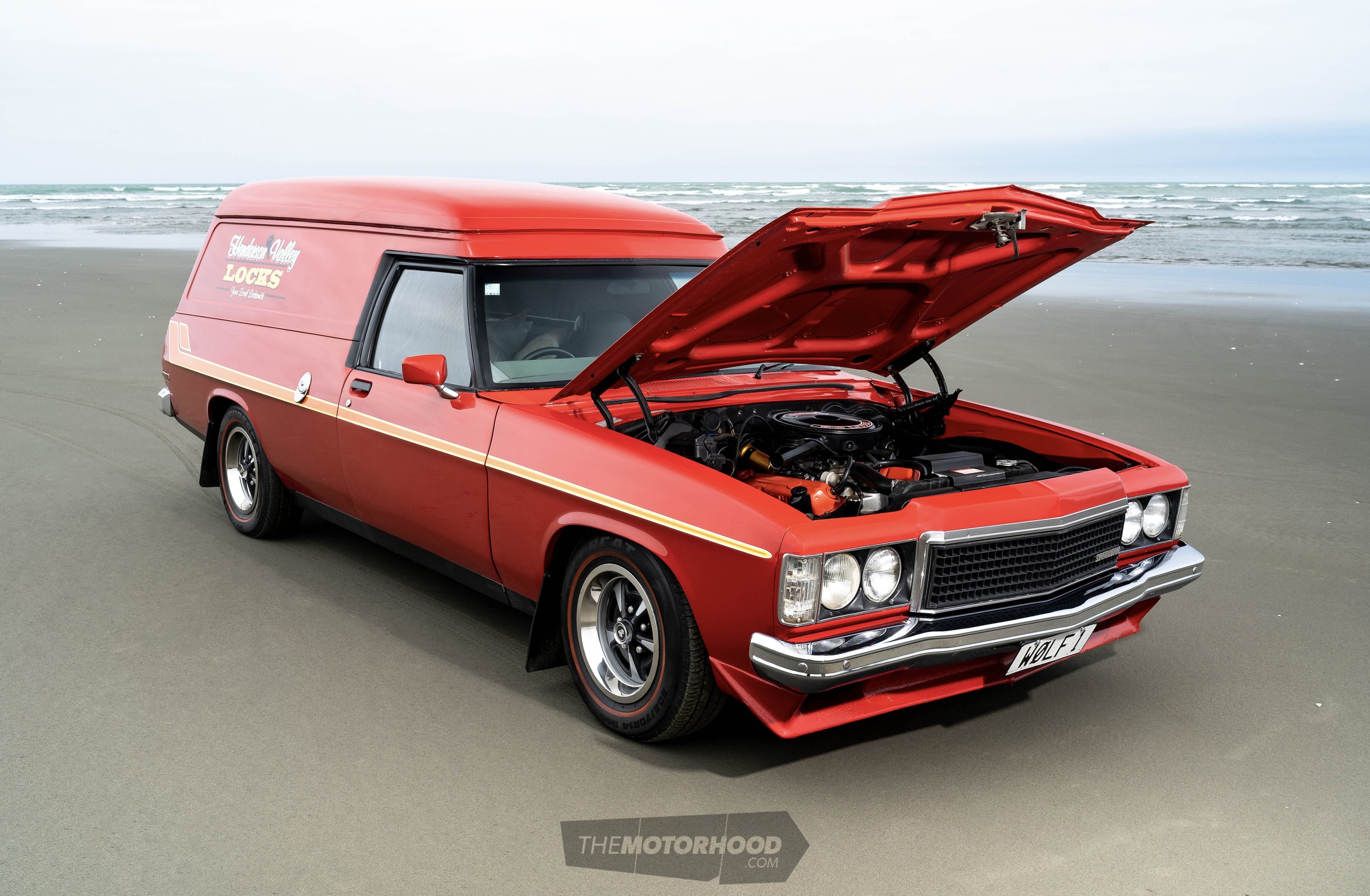
This article originally appeared in New Zealand Classic Car issue No. 373

